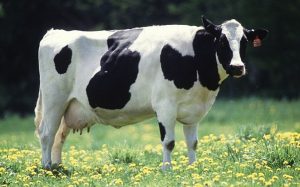By Guy Page
Do Vermont livestock need more legal protection for better living conditions? Do farmers need more protection from nuisance lawsuits by neighbors? And if it’s made from a grain or a legume, is it really milk?
Bills addressing these questions have been introduced by members of the Vermont House Committee on Agriculture and Forestry. This committee oversees agriculture and forestry, forest products and their market, and state parks and lands. Members hail from rural areas, including the biggest farm counties, and bring geographic diversity and extensive educational and work know-how:
- Chair and Carolyn W. Partridge (D-Windham) is a farmer and farm organization official.
- Vice-Chair Rodney Graham (R-Williamstown) is a dairy farmer, maple sugar producer, and member of many farm cooperatives and organizations.
- Clerk John L. Bartholomew (D-Hartland) is a retired veterinarian.
- Thomas Bock (D-Chester) has decades of experience in rural zoning and planning.
- Charen Fegard (D-Franklin), in ag-heavy Franklin County) raises meat birds, sheep, laying hens, and vegetables, and enjoys deer hunting.
- Terry Norris (I-Shoreham) was raised on, and later operated, an Addison County dairy farm until it was sold in 2008. He’s a ferry captain and deckhand now.
- John O’Brien (D-Tunbridge) was raised on the family sheep farm in Tunbridge. He describes himself as “the only filmmaker in America who can shear a sheep and milk a cow.”
- Vicki Strong (R-Irasburg, in the Northeast Kingdom) studied forestry, conservation and agriculture at Sterling College in Craftsbury.
Nuisance lawsuits – H.232 says “no action for nuisance shall be brought against a farmer lawfully conducting agricultural activities.” Co-sponsored by five of the nine committee members – two Democrats, two Republicans, and independent Norris – this bill adds legal protection for the farmer with litigious neighbors who dislike noisy farm machinery, smelly manure, slow tractors, etc.. Note: If marijuana cultivation is legalized, H.232 also might protect farmers from complaints of its pungent, sickly-sweet smell. Beefing up right-to-farm laws are part of a national push by farm advocacy groups, including the Farm Bureau.

IS IT MILK? Almond, rice or cashew milk may look like milk, it may even taste like milk, but in the local supermarket it should not be branded as “milk.” Unless it comes from the teat of a cow, goat, sheep, it’s not milk.
Livestock living conditions – H.254, sponsored by Bartholomew, Bock, and O’Brien, adds more specific requirements for humane shelter, ventilation, exercise, nutrition and (if used) tethering for all livestock kept indoors. It defines some animal husbandry practices intended to minimize animal pain and suffering and make best use of Vermont weather and terrain:
“’Adequate constructed shelter’ means a well-drained and structurally sound building with a waterproof roof that is of sufficient size to provide a windbreak and protection from exposure to prevailing winds, rain, hail, sleet, snow, and sun and that provides enough space to accommodate at one time all livestock and animals comfortably. The building opening size and height shall, at a minimum, allow six inches of clearance above the largest animal’s ears when the animal is standing in a normal position and the clearance shall be maintained at that level even with manure and litter buildup.”
Milk – H.480 & 481 would expand sale of unpasteurized milk at co-ops and farm stands. H81, introduced by Chair Partridge and co-sponsored by six other committee members, “proposes to clarify the definition of “milk” to mean the pure lacteal secretion of hooved animals. A product sold as milk that does not conform to the definition of “milk” would be an adulterated product subject to penalty by the Secretary of Agriculture, Food and Markets.”
Almond, rice or cashew milk may look like milk, it may even taste like milk, but in the local supermarket it should not be branded as “milk.” Unless it comes from the teat of a cow, goat, sheep, it’s not milk.
Two forest taxation and carbon-credit bills are in committee, but neither were co-sponsored by a committee member. The committee schedule and all pending bills can be seen here.
Read more of Guy Page’s reports at the Vermont Daily Chronicle.



Well, well, it looks as if these folks in Montpelier have finally come to their collective senses. They are finally addressing an issue that is right on!!!
H 232, is a good one ” Nuisance lawsuits ” it’s about time, you have these flatlanders that
purchase property in VT to escape the Liberal Nonsense in the City, and then move next
to a farm and complain about the smell & noise……… wow !!.
H 81, now we have to tell people what ” Milk ” really is to mean the pure lacteal secretion of
hooved animals………. Milk ” not ” ot a crushed nut !!……….you can’t make this stuff up!
Protect our few remaining farms & farmland!!